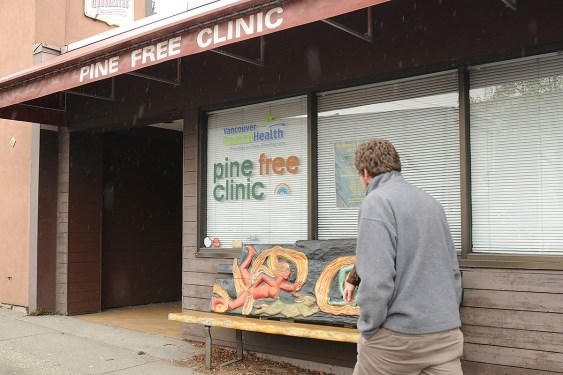It was a done deal. Long before the public had the slightest whiff that Vancouver Coastal Health (VCH) was making major changes to its six primary health clinics in Vancouver, the plan was in the works.
Layoff notices had been given to staff. Many of the public clinic doctors had taken the option of changing from salaried positions to “fee for service” practices which they would carry out in private clinics, hopefully taking their patients with them.
This failure to consult until after change was under way provided much of the consternation among those most affected, to say nothing of the nature of the changes, which for some, will make their access to care more difficult. And those most affected include thousands of vulnerable seniors, mentally ill, drug addicted and youth.
The failure to consult except as an afterthought is puzzling given VCH’s past practise; it has a significant “public engagement” crew in house which it chose not to use to engage the public.
Last week city council debated a motion on all those changes. The motion was put forward by Vision Vancouver Coun. Kerry Jang.
It asked for a return of services that will be stripped away from a number of the clinics. It passed unanimously.
I wouldn’t bet on it having much weight.
As one VCH “decision maker” said: We aren’t going to tell you how to run the city.
The public also had the opportunity to express its consternation over the lack of consultation and the impact these changes would have on their lives. None I heard were pleased.
The medical lead on the project, Dr. David Hall, told city council that VCH had to remain mute on the matter until now because it had to deal with doctors who had contracts and workers who were unionized. That’s pretty thin.
It didn’t stop VCH from asking for and funding an external reviewers report on the six clinics.
The final version of that report was issued in January. It was not glowing in its assessment or the direction VCH now appears to be heading.
Two things worth noting: most importantly, the reviewers cautioned against any plan to consolidate services in a few clinics.
That may meet some of VCH’s “immediate concerns” but “the optics appear contrary to the government’s current integration and interdisciplinary care agenda.”
And they added that “consolidation also is likely to reduce access to primary care for many high-need patients and will eliminate the opportunity to customize individual clinics to meet individual community needs.”
What wasn’t discussed in any detail at council was the major criticism the reviewers had of the “management” of the system of clinics.
You get the impression that VCH wasn’t paying much attention or providing much direction.
For starters, the clinics for the most part weren’t operating with those much lauded “interdisciplinary teams.” There was just a hodgepodge of staff depending on “budget restraints” which meant there were “several reports of vacated RN (registered nurse) and NP (nurse practitioners) positions not being filled for long periods of time.” The report notes “this delay virtually eliminated that team’s interdisciplinary aspect.”
You have to ask who was running the show if the reviewers found “little evidence of organized physician clinical leadership on key policy and practice issues, either within individual clinics or across the program as a whole.”
And then this: “In conclusion, we observed a lack of what may be best described as the overarching ‘culture of care’ that is essential to fostering patient access, creating team ethos, and providing mutual support for staff.”
This is all laid at the feet of VCH for its absolute failure to manage the system in a way that “would encourage the clinics to be invested in providing effective and efficient patient care or providers to feel they have a voice in the design and operation of the UPC Clinic program.”
Given those findings, it is hard to imagine the deck chair shuffling that is going on now — even if it makes sense in some instances — will provide a much better result for the high-need citizens who rely on those clinics for their very lives.
Apparently they are held in such low regard as to be ignored until all the decisions have been made.



